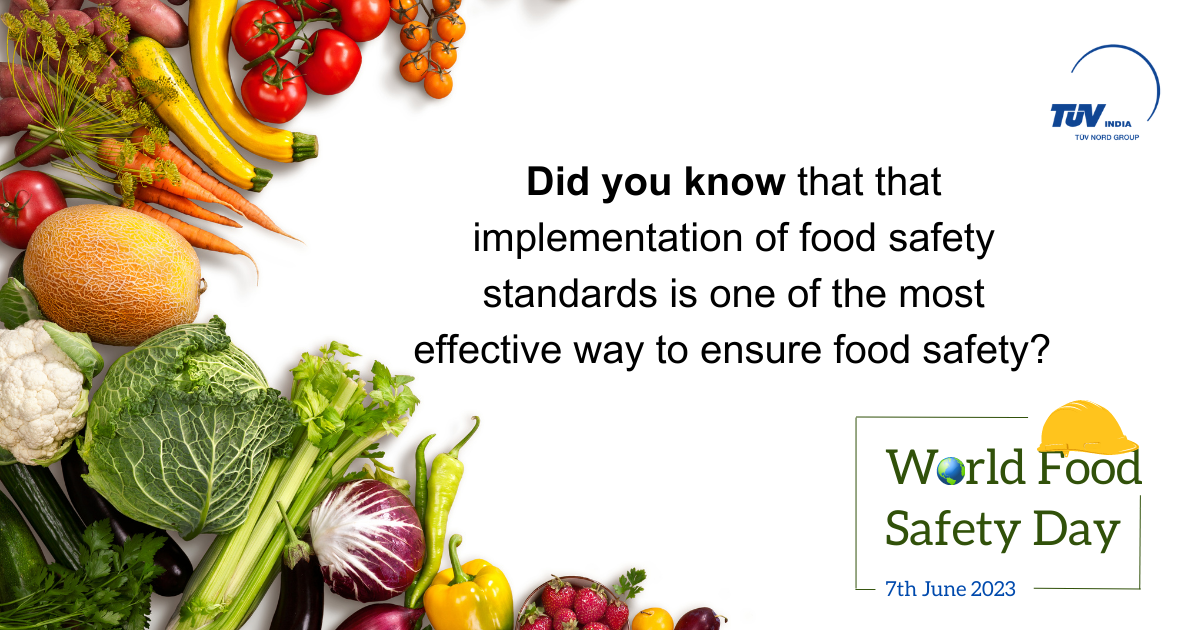June 7th is celebrated as the World Food Safety Day with the focus on drawing attention towards various foodborne risks and the actions required to be implemented for mitigating the same. It also helps in focusing on sustainable improvement of the overall food safety and health environment. It was an effort from two organizations of the United Nations, WHO and FAO, which led to the designation of June 7 as the World Food Safety Day in 2018.
The theme of the World Food Safety Day for 2023 is “Food Standards Save Lives”.
The objective behind this theme is to raise awareness about the need to follow food safety regulations and the consequence of ignoring them.
Food in India refers to everything sold by a roadside vendor to food being served in medium and upscale restaurants to finally big food manufacturing companies which processes, packs and sells various types of prepared and unprepared foods both locally and internationally. Though the practices followed by each one of them would range across a wide scale, what remains a priority to the final consumers is the concern on - How safe the food we are consuming is?
Implementation of Food Safety standards is one of the most effective way to ensure food safety. These standards are based on good manufacturing practices and approach of identifying various food safety hazards followed by mitigating the same through efficient action plans. It is also equally important to adhere to the various standards and specifications defined by the regulatory body – FSSAI in India, to ensure that the products are complying with the specifications defined therein.
The various Food Safety standards are designed in such a manner that it strikes a balance between technical requirements for food safety and management commitment. There are requirements which focus on the good manufacturing practices to be followed, the personnel hygiene practices, medical fitness of working personnel, reviews to be conducted by management to understand current standing of business and actions to be implemented to go to the next level, etc.
All these standards are very dynamic in nature and keep getting updated almost every 5 years. The intent behind these updates are to meet the newer trends and challenges in food safety as well as to meet the customer requirements of quality, taste and safe food. The standards intent is to expect that food safety is imbibed in the system and is not personnel oriented.
Adherence to the standards helps organizations in multiple ways. The first and obviously biggest impact is that it shows to all stakeholders and customers dealing with the organization their commitment to food safety. Further when an organization implements these systems, it ensures greater opportunity for business in the international markets as well which results in better acceptability and global recognition. It also helps organizations to identify any potential serious issues concerning food safety well in advance thereby reducing the possibilities of any such occurrence at actuals.
The expertise available within the TUV India team is a one stop solution to support for all Food Certification and Food Testing Requirements. This also includes in depth technical assessments by experienced auditors towards the requirements of various food safety standards as well as exhaustive awareness training programs covering all the key facets of these standards delivered by qualified trainers.
About The Author

TUV India Pvt Ltd
TÜV NORD GROUP
certificationindia@tuv-nord.com
